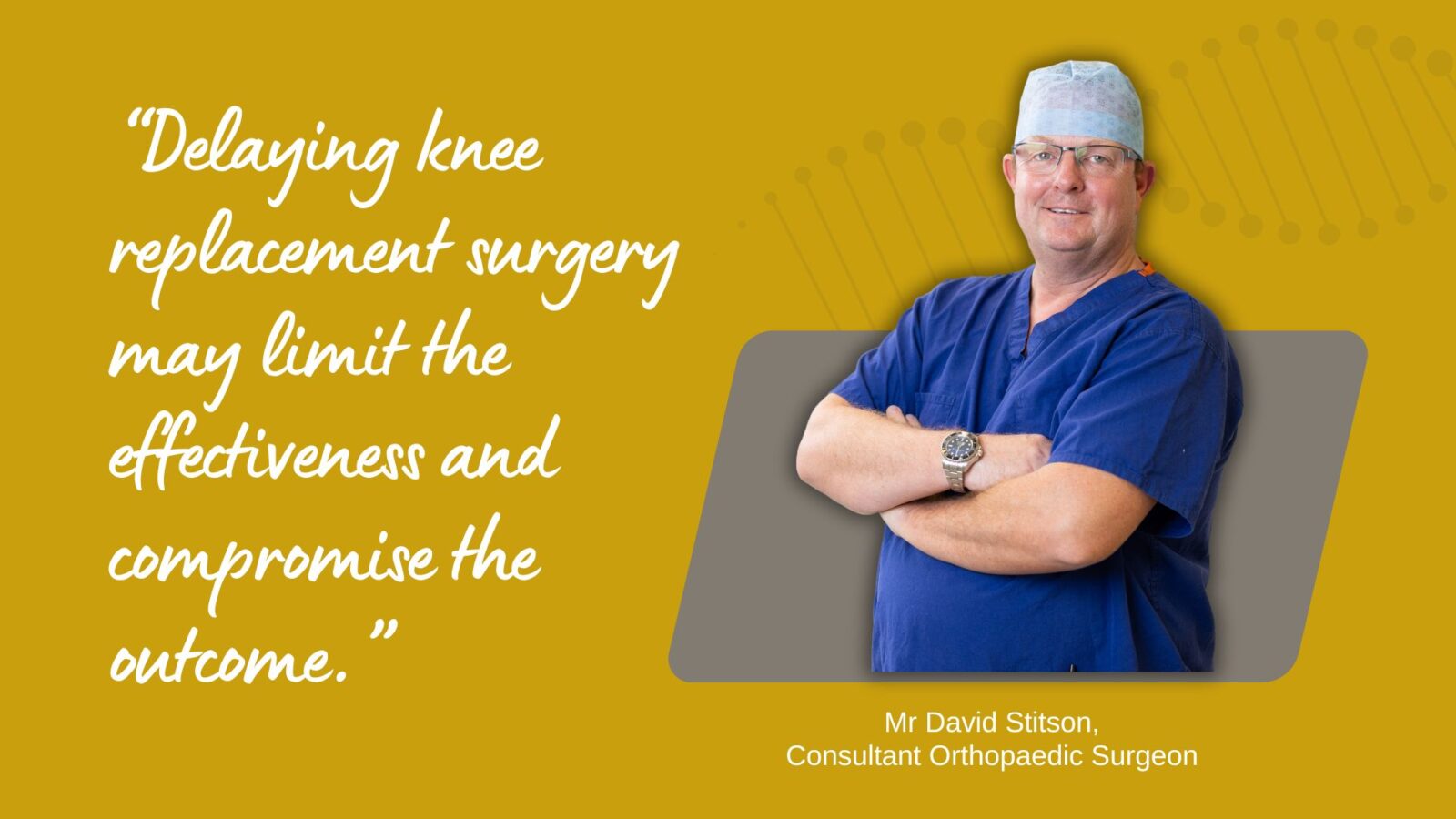There are 8 main consequences of delaying knee replacement surgery:
Contents
Toggle1. Increasing Pain and Discomfort:
Continuing to delay surgery means enduring ongoing knee pain and discomfort, which can significantly impact your quality of life and ability to perform daily activities.
2. Progressive Joint Damage:
Osteoarthritis, the most common reason for knee replacement surgery, is a progressive condition. Delaying surgery allows the degeneration of the knee joint to worsen, potentially leading to more extensive damage over time.
3. Loss of Function and Mobility:
As the knee joint deteriorates, you may experience a loss of function and mobility. Delaying surgery can exacerbate these issues, making it more challenging to engage in physical activities and maintain an active lifestyle.
4. Muscle Weakness and Atrophy:
Chronic knee pain and decreased mobility can lead to muscle weakness and atrophy around the knee joint. This can further impair your ability to move and perform daily tasks.
5. Increased Risk of Complications:
Delaying knee replacement surgery can increase the risk of complications associated with the procedure. These complications may include infection, blood clots, nerve damage and a prolonged recovery times.
6. Joint Deformity:
In advanced cases of osteoarthritis, the knee joint may become deformed. Delaying surgery can allow the joint deformity to progress, making the surgical procedure more challenging and potentially affecting the outcome.
7. Limited Treatment Options:
Waiting too long for surgery may limit your treatment options. In some cases, the damage to the knee joint may become so severe that conservative treatments such as physiotherapy, medication, and injections are no longer effective.
It can be quicker and more beneficial to relieve your pain and impaired mobility by opting for private treatment.
READ: Why Choose a Private Orthopaedic Practice?
8. Reduced Quality of Life:
Ultimately, delaying knee replacement surgery can lead to a reduced quality of life due to ongoing pain, limited mobility and decreased ability to participate in activities you enjoy.
It is essential to discuss the risks and benefits of knee replacement surgery with Mr Stitson in order to be able to make an informed decision based on your individual circumstances and the condition of your knee.
REMEMBER: Early intervention may lead to better outcomes and improved quality of life.
Delaying knee replacement surgery can have significant consequences
If knee replacement surgery is postponed indefinitely, the resulting damage and deformity of the knee joint may become technically much more difficult to correct. Severe arthritis can cause deformity and instability in the knee, making it difficult to walk or even stand. In some cases, bone-on-bone contact may occur which results in severe pain disability.
As the condition progresses, pain and stiffness often worsen, limiting mobility and reducing the ability to perform everyday tasks. Chronic knee pain can also lead to decreased physical activity, muscle weakness and weight gain, which may further exacerbate the problem.
Prolonged use of pain medications to manage symptoms may also result in side effects and complications. Ultimately, the timing of your knee replacement surgery is especially important.
Delaying surgery may limit the effectiveness of knee replacement and compromise the outcome.
If you are experiencing persistent knee pain that interferes with your daily life, don’t hesitate to consult with Mr Stitson to explore your treatment options.
About Knee Surgery
Knee replacement surgery replaces the worn out, painful and stiff knee joint with a new prosthetic joint. This procedure which may be a partial or a total replacement is normally performed under spinal anaesthesia and is usually followed by a night or two in the hospital. Day-case knee replacement surgery may be an appropriate option for you.

About Mr Stitson
David Stitson is a Plymouth-based Consultant Trauma and Orthopaedic Surgeon. Trained both in the UK and internationally, he has worked in medicine for more than 20 years for the NHS, for the Royal Air Force and in private practice. Mr Stitson operates privately at the Nuffield Health Hospital, Plymouth.

The Nuffield Plymouth CQC Rating
The Nuffield Hospital has a history that spans over half a century and has built a reputation for high standards of care, professionalism and expertise in delivering health services. They aim for continuous quality improvement in everything they do.
Active Quality and Governance programmes are in place at the Nuffield Hospital Plymouth. As part of this, the hospital is inspected by independent healthcare regulators to ensure it meets the fundamental standards of quality and safety as determined by the regulating body (CQC).
In the most recent inspection, Plymouth Nuffield Hospital was rated as ‘Good’ overall, however, the surgical element of the inspection was rated as ‘Outstanding’. The hospital was referred to as:
“Outstanding in effective and caring, and
Good in safe, responsive and well-led.”





